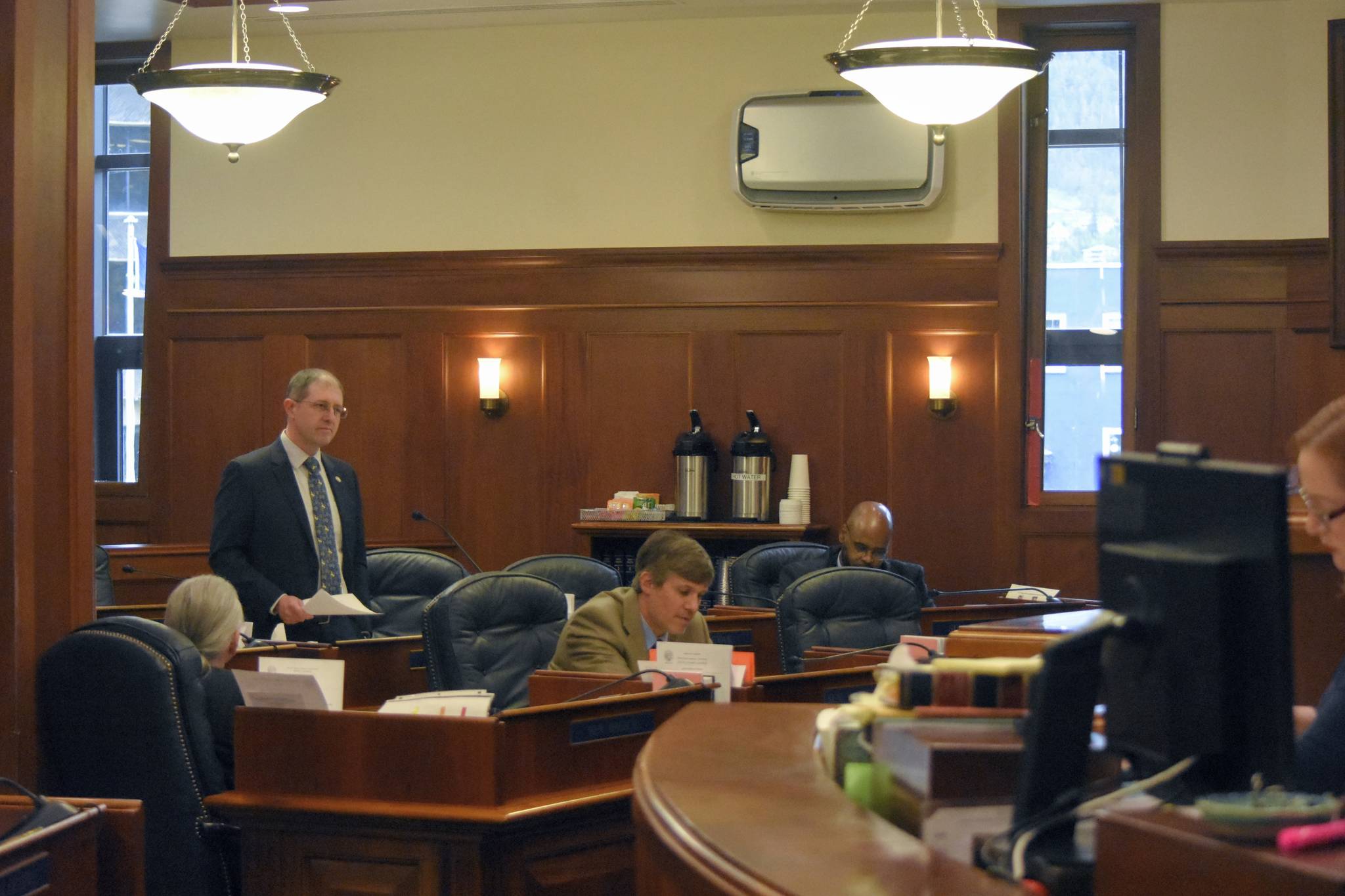An earlier version of this article cited a document advising that Alaska Marine Highway System staff will be laid off for the duration of the shutdown. AMHS would remain fully operational in the event of a partial government shutdown as it is considered a critical service. This article has been updated to reflect that.
Lawmakers were unable to say Wednesday if a government shutdown can be avoided by next week, but expressed cautious optimism an agreement could be reached before July 1.
House Speaker Louise Stutes, R-Kodiak, said she was optimistic about negotiations with the House minority over a vote for the effective date clause of a state budget bill, but declined to give further details saying she didn’t want to derail those talks.
Stutes said Wednesday she’d “crested that hill,” in negotiations with the Republican House minority caucus but also said she didn’t want to say too much for fear of jeopardizing those negotiations. On Friday House leadership expressed frustration at not getting a coherent request from the minority, whose members represent conflicting positions.
Both bodies of the Legislature met for brief sessions Wednesday and are scheduled to meet again Friday.
[Second special session starts as legal dispute continues]
The state’s fiscal year begins July 1, and if the Legislature and Gov. Mike Dunleavy are not able to agree on a budget before then most state agencies and services will shut down.
Attorney General Treg Taylor filed a lawsuit against the Legislature Monday and asked an Alaska Superior Court for guidance on the issue as soon as possible.
On the first day of the Alaska State Legislature’s second special session of the summer, Gov. Mike Dunleavy introduced a bill he said will help resolve the division among lawmakers, but legal questions remain as the state runs up against a deadline for a government shutdown.
Senate President Peter Micciche, R-Soldotna, said Wednesday the Senate had passed both the budget and the effective date clause, and the disagreement was in the House. Stutes told reporters negotiations were focused on the effective date clause vote as that was the most effective way to avert a government shutdown.
On the floor, Wednesday lawmakers cast blame at each other and the governor for threatening a shutdown that most said was avoidable and unnecessary.
Sen. Jesse Kiehl, D-Juneau, said Dunleavy was choosing to ignore decades of precedent by past Legislatures and governors and his own bills included retroactivity clauses.
“Actions speak louder than words,” Kiehl said. “Whatever he’s selling, he’s not buying.”
Lawmakers have said the impacts of a government shutdown, even if averted at the last minute, are expensive for the state and disruptive for Alaskans. State employees received a 13-page FAQ Wednesday from the Department of Administration outlining what to do in the event of a shutdown.
The governor’s office is compiling is a list of essential workers that will remain employed if a shutdown does occur and the state’s largest public-sector union, the Alaska State Employees Association, is advising its members to stay alert for updates from the state.
In an email University of Alaska Southeast Vice Chancellor for Administrative Services Michael Ciri said because of budget uncertainty over the past eight years the school has shutdown contingency plans in place.
“The largest impact to UA as well as individual students and staff is uncertainty,” Ciri said. “Financial uncertainty impacts our students who are preparing for college. It also profoundly impacts the morale of our staff who have already been impacted by the pandemic.”
A House Finance Committee meeting is scheduled for 1:30 p.m. Thursday, and lawmakers will take public testimony on the governor’s budget bill.
• Contact reporter Peter Segall at psegall@juneauempire.com. Follow him on Twitter at @SegallJnuEmpire.

